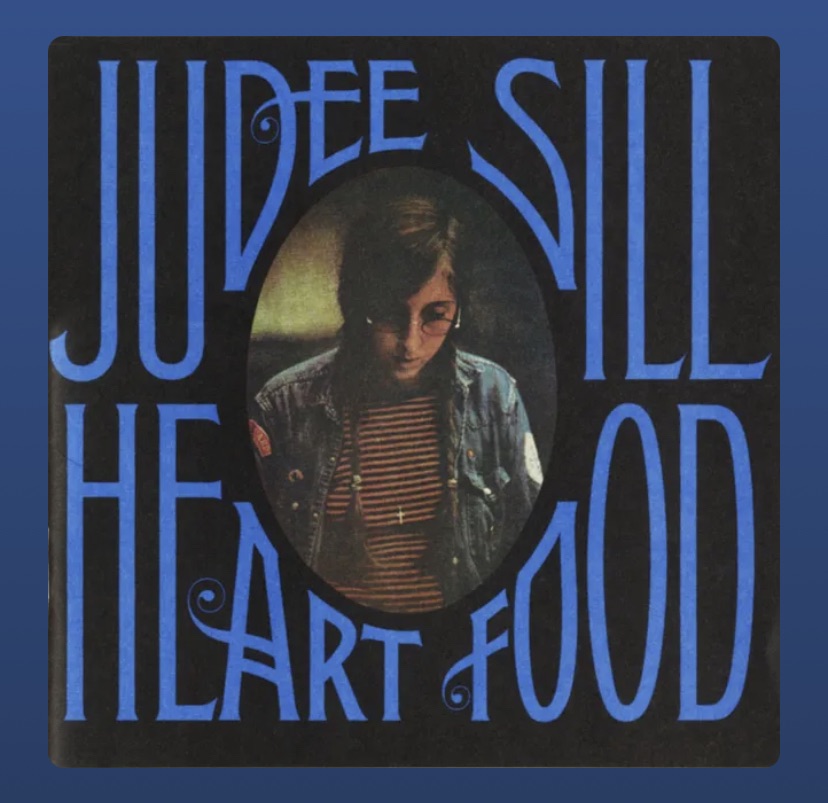
Judee Sill, born on October 7, 1944, was a singer-songwriter with deeply religious overtones and a penchant for the occult, making her one of rock’s more intriguing and lesser-known figures. Born into a family of old Hollywood wealth, Sill faced early tragedy with the death of her father during childhood and the subsequent loss of her brother in a car crash. These experiences instilled in her a bleak outlook on life, which she expressed through an arty, disaffected attitude.

Sill harbored resentment toward her stepfather and disapproved of her mother’s remarriage. As a form of quiet revenge, she embarked on a nomadic lifestyle, traveling across America. While she had always been interested in music, it wasn’t until her travels that she began taking it more seriously, performing in small coffeehouses and dive bars for her own amusement.
During this time, Sill and her friends experimented with drugs for recreational and exploratory purposes. However, as she continued her wanderings, she fell into a regular heroin habit, eventually developing a costly addiction that required $150 per day to sustain.

In the late 1960s, Sill was arrested for heroin possession and served three months in prison. During her incarceration, she managed to overcome her addiction. Upon her release, she devoted herself entirely to making music. Returning to Los Angeles, she utilized her connections in Hollywood and was introduced to David Geffen, who was in the process of establishing Asylum Records, a label focusing on non-rock music. Recognizing Sill’s talent as a writer and performer, Geffen promptly signed her to Asylum, making her self-titled debut album the label’s inaugural release.
Through David Geffen, Sill crossed paths with Graham Nash, who became an ardent admirer and produced her first single, “Jesus Was a Cross Maker.” The rest of her eponymous album was orchestrated and produced by Bob Harris, Sill’s ex-husband. “Judee Sill,” released in 1971, received immediate acclaim. The album featured lush orchestration and showcased Sill’s voice through overdubs, often arranged in four-part chorales or fugues. It fit well within the light rock and folk-rock foundations of the Laurel Canyon sound, associated with female singer-songwriters like Carole King and Joni Mitchell, who were also signed to Asylum. Sill embarked on a tour as the opening act for Nash and David Crosby, which exposed her intimate songwriting and skillful guitar playing to a wider audience. However, despite receiving some airplay for “Jesus Was a Cross Maker,” her record struggled to make a significant impact.
Sill was known for her perfectionist tendencies, often spending a year to craft a single song. It wasn’t until late 1972 that she returned to the studio to record her second and final album, “Heart Food.” The album featured what is probably Sill’s best-known song, “The Kiss.”
The album received enthusiastic reviews but fared poorly commercially. Sill took charge of orchestrating and arranging “Heart Food,” relying heavily on multi-layered strings and expansive production. Unable to attract a sizable following yet unwilling to perform as a supporting act, Sill’s fame waned, and she eventually disappeared from public view.

Rumors circulated regarding Sill’s subsequent activities, although it is confirmed that she relapsed into heroin addiction and became heavily involved with cocaine. Graham Nash claimed to have learned as early as 1974 that Sill had died of an overdose, but this information later proved to be incorrect. Nevertheless, the fact that Nash, with whom she had worked closely just a few years prior, believed her to be deceased illustrates the extent to which Sill had withdrawn from public life. Tragically, Judee Sill, at the age of 35, passed away on November 23, 1979, succumbing to a drug overdose.

Though she achieved only modest success during her lifetime, Sill’s influence looms large. She left a lasting impact on fellow West Coast singer-songwriter Warren Zevon, and her songs have been covered and cited as a primary source of inspiration by artists such as Andy Partridge, Liz Phair, Beth Orton, Bill Callahan, and Bonnie “Prince” Billy. In the 21st century, her two albums have been reissued multiple times. In 2005, her previously unreleased third album, “Dreams Come True,” produced by Bill Plummer, engineered by Emitt Rhodes, and featuring a finished mix by Jim O’Rourke in 2004, finally saw the light of day, almost 30 years after it was shelved. It was followed by “Live in London: The BBC Recordings 1972-1973” in 2007 and, in 2018, the release of “Songs of Rapture and Redemption: Rarities & Live.”

This collection included remastered demos from her album recording sessions, solo home recordings, and an entire concert from the Boston Music Hall, all packaged in a deluxe set with new liner notes. Judee Sill’s profound musical talent and unique artistic vision continue to resonate with listeners, even after her untimely death on November 23, 1979.


Leave a comment